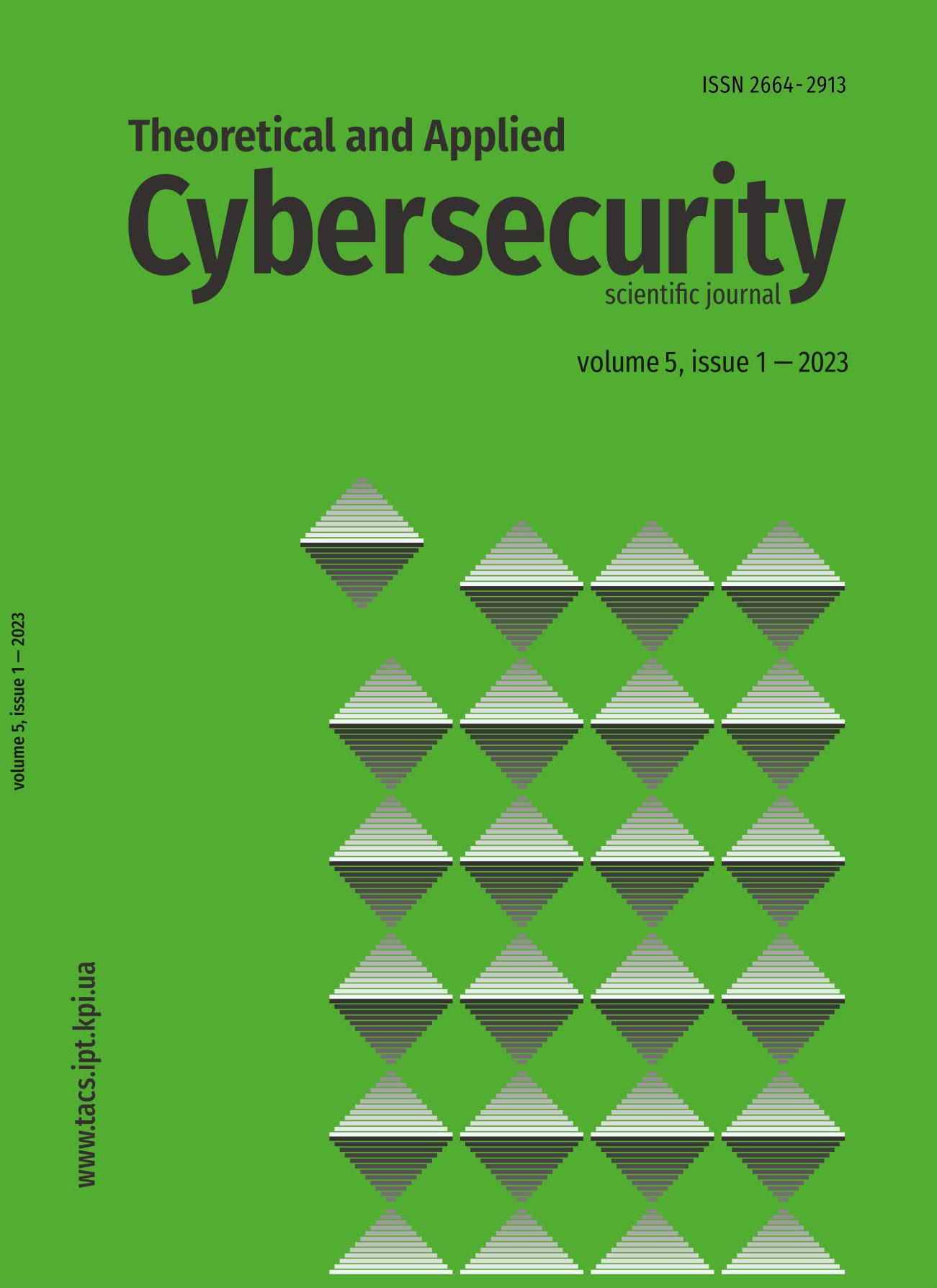The Forgery Attack on the Post-Quantum AJPS-2 Cryptosystem and Modification of the AJPS-2 Cryptosystem by Changing the Class of Numbers Used as a Module
DOI:
https://doi.org/10.20535/tacs.2664-29132023.1.286166Abstract
In recent years, post-quantum (quantum-resistant) cryptography has been actively researched, in particular, due to the National Institute of Standards and Technology's (NIST) Post-Quantum Cryptography Competition (PQC), which has been running since 2017. One of the participants in the first round of the competition is the Mersenne-756839 key encapsulation mechanism based on the AJPS-2 encryption scheme. The arithmetic modulo Mersenne number is used to construct the cryptoprimitives of the AJPS family. In this paper, we propose a forgery attack on the AJPS-2 cryptosystem using an active eavesdropper, and two modifications of the post-quantum AJPS-2 cryptosystem, namely, the modification of AJPS-2 using the arithmetic modulo generalized Mersenne number and Crandall number. Moreover, new algebraic problems are defined, on the complexity of which the security of the created modifications is based. The advantages of these modifications are the extension of the number class used as a module in the cryptosystem and the security against the forgery attack with the active eavesdropper, which was successful in the original AJPS-2.
Downloads
Published
Issue
Section
License
Authors who publish with this journal agree to the following terms:
Authors retain copyright and grant the journal right of first publication with the work simultaneously licensed under a Creative Commons Attribution License that allows others to share the work with an acknowledgement of the work's authorship and initial publication in this journal.
Authors are able to enter into separate, additional contractual arrangements for the non-exclusive distribution of the journal's published version of the work (e.g., post it to an institutional repository or publish it in a book), with an acknowledgement of its initial publication in this journal.
- Authors are permitted and encouraged to post their work online (e.g., in institutional repositories or on their website) prior to and during the submission process, as it can lead to productive exchanges, as well as earlier and greater citation of published work (See The Effect of Open Access).

